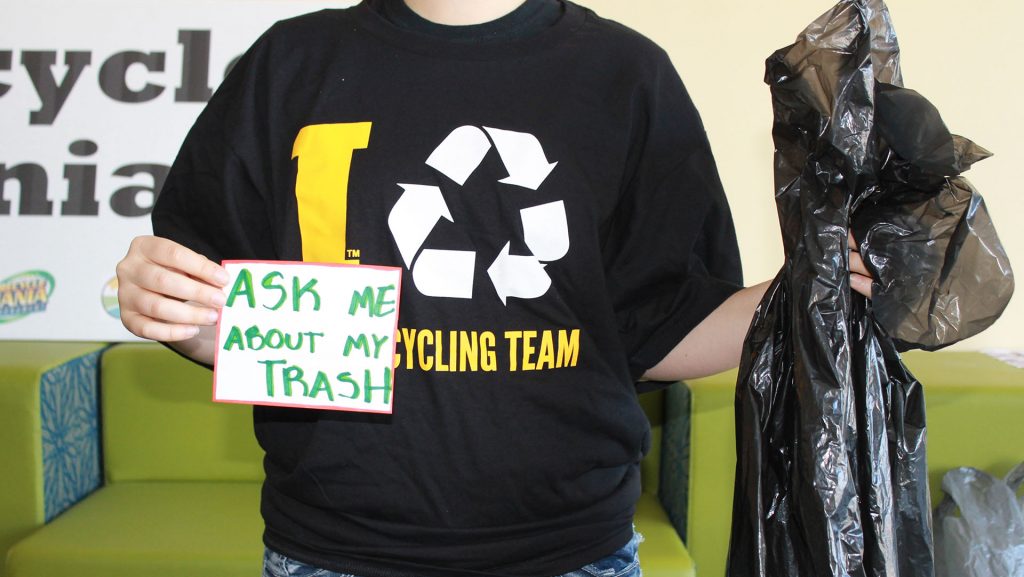If everyone in the world lived like people do in Iowa City, it would take four Earths to sustain that lifestyle, according to a new summary report from the city of Iowa City.
The tests used for the study, which were performed in 2015, were supported by the Urban Sustainability Directors’ Network Sustainable Consumption Grant. The tests resulted in a Consumption Based Emission Inventory and Ecological Footprint Assessment for Iowa City.
City sustainability coordinator Brenda Nations said the consumption test measured greenhouse-gas emissions in Iowa City, which included information about energy use from buildings, the UI Power Plant, transportation, and waste emissions.
RELATED: University of Iowa faculty expands search abroad for clean energy
The footprint test calculated the land use necessary for the food, clothing, and everything else consumed and wasted by Iowa City residents.
The study was conducted by two researchers in Vancouver, one of whom was doing a Ph.D. on the ecoCity Footprint tool. The city gathered the information that was used in the research.
In comparison with other U.S. cities, four Earths is actually a little below average, Nations said.
“We’re actually less than the average U.S. city,” she said. “We’ve worked with other Canadian cities, and we were higher than the Canadian cities around Vancouver, and that’s because they use hydropower and recycle a lot more.”
Much of the energy Iowa City uses is beginning to come from wind, but it typically comes from natural gas and coal.
George McCrory, a communications specialist in the UI Office of Sustainability, said that by 2020, the university aims to get 40 percent of its energy from renewable sources and to use less energy overall.
RELATED: Iowa professor hosts book release with Iowa City Green Drinks
The university is also attempting to change the energy source used in the Power Plant. By 2025, the UI intends to switch from burning coal to burning biomass to meet its energy needs.
The study incorporates emissions and waste generated when products are brought in from outside the city. But when it comes to solutions, Nations said, officials “mainly look at what we do in our city limits.”
Nations also said there are people trying to promote a plant-based diet, along with eating local foods to reduce these greenhouse-gas emissions. The city also works to promote recycling and upcycling.
RELATED: RecycleMania cycles back on University of Iowa campus
“The main thing is to get the information out there and have an education campaign, to see what people can do,” Nations said.
McCrory said he speaks at freshman Orientation as well as international-student Orientation about what students, as well as Iowa City residents, can do to be more environmentally friendly.
In relation to suggestions to be more environmentally conscious, McCrory said this includes reducing car travel anyway possible, turning off lights, unplugging electronics and appliances that aren’t in use, recycling, and conserving water. He also spoke about collective power when it comes to change.



